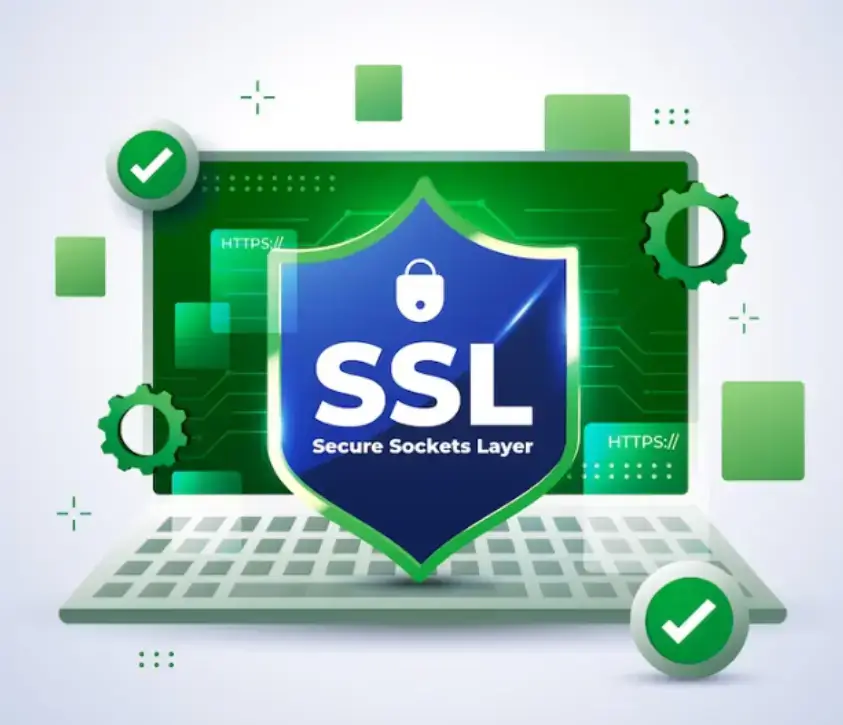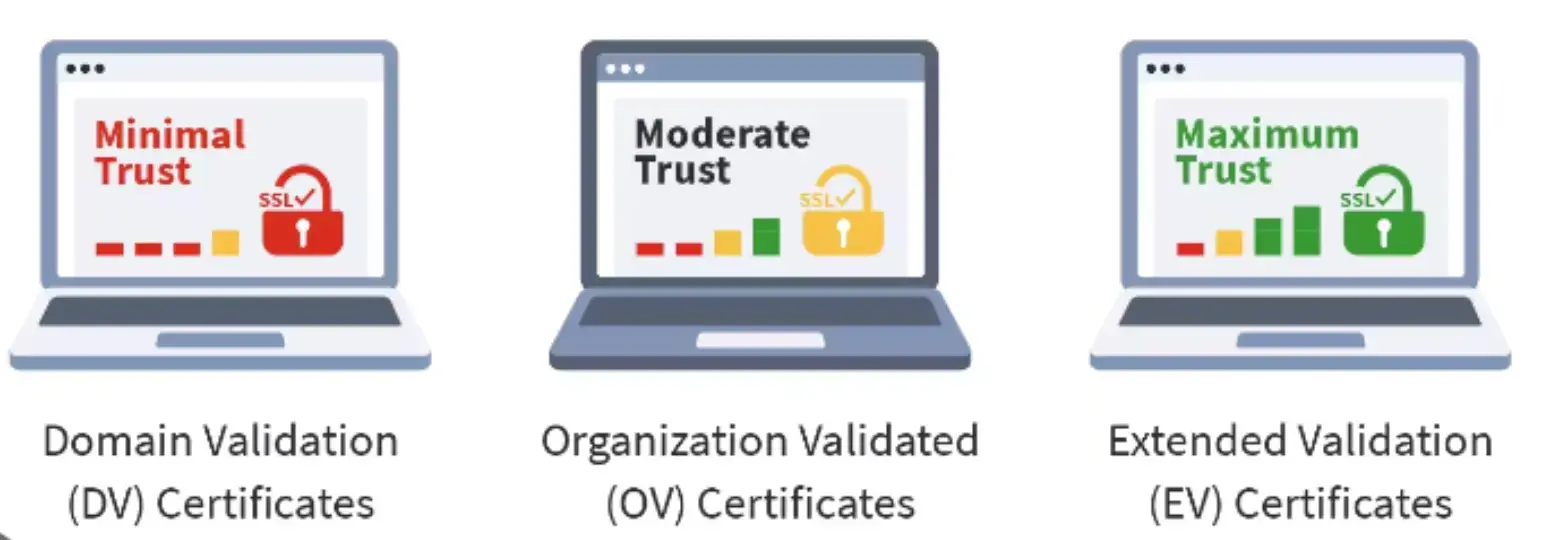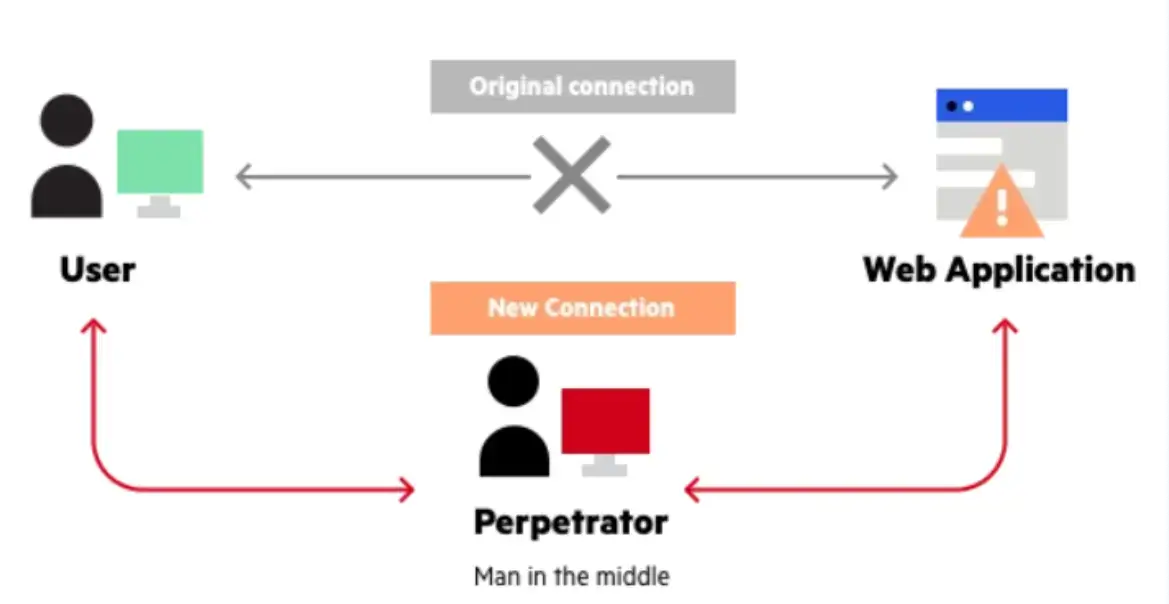Time and knowledge have made people smarter; now more knowledgeable of things they were not previously.
For example, during the mid-1990s, website security was rarely considered; today, however, it has become an urgent topic of conversation on every networked device.

In this article:
- What is an SSL Certificate?
- Why Do eCommerce Websites Need an SSL Certificate?
- Different Types of SSL Certificates
- SSL Validation Levels
- How to Find an Appropriate SSL Certificate
- Risks of Not Having an SSL Certificate
Internet users tend to avoid websites with no security in place, particularly those operating ecommerce stores that collect their customers' sensitive details such as phone numbers, addresses, and payment card data.
Many web owners might question if their sites have established an encrypted link with visitors by installing an SSL certificate. Yet, much need to realize this may only sometimes be the case.
At our blog, we can assist with selecting an SSL certificate best suited to an ecommerce website. Now we will move away from small talk and directly discuss SSL certificates.
What Is an SSL Certificate For an eCommerce Store?
When people discuss SSL for ecommerce websites, they generally mean certificates that allow an encrypted connection between the client (your site users' browsers) and server.

An SSL certificate enables your website to switch from HTTP to HTTPS instead of just using HTTP directly and protect its data in transit - giving rise to that cute little padlock icon in browser address bars everywhere!
Ecommerce websites must take extra measures to safeguard user data and information by creating an encrypted communication channel between their browser and server, where eavesdroppers could view it directly, and HTTPS enabled.
With HTTPS activated, all this plaintext data would travel via an encrypted, safe channel instead.
As stated, SSL safeguards sensitive data and information against being breached by malicious actors. However, which SSL certificate kind should you pick? Like ice cream, certificates are available in a variety of flavors.
You can choose between single domains, multiple domains, wildcards, and various domains wildcards.
Which certificate you should get will depend on whether you have one site or several and whether there are many subdomains on one or many of your websites.
However, things do not stop there. There is one more critical component to take into account, and that factor is certificate validity. Consider grabbing a 40% Off HawkHost Coupon Code.
Why Do eCommerce Websites Need SSL Certificates?
Ecommerce websites deal with credit card details, payment gateway, and login forms. These details are prone to be hacked, so it is a safe practice to get them encrypted or secured.
SSL Certificate encrypts the data in transit and helps secure essential data from being hacked.
Below are the points that emphasize ecommerce websites that need the low-priced or cheapest SSL Certificate to get higher encryption.
- Credit card details: During checkout on e-commerce websites, users are prompted for their credit or debit card numbers.
In these situations, the ecommerce website owner's responsible for ensuring the online transaction is secure and error-free.
A safe transaction between the web server and the web page is guaranteed by SSL encryption.
It is difficult for any third party to perform website hacks because the keys needed to decrypt the information are only known by the web server and the web page.
- Third-party payment gateway: A third-party payment gateway lets websites accept payments through services like PayPal.
To protect your data, you should transfer requests using the "HTTPS" protocol.
- Login forms: Websites requesting login information can prevent user impersonation by using SSL encryption on their login forms.
A primary type of SSL certificate for login forms might function well if your investment budgets are a concern.
- Shopping ads: Posting-shopping advertising on Google will bring traffic to your e-commerce website.
There is a catch, though: use SSL encryption to secure the payment section of your website.
Different Types of SSL Certificates
Single-domain SSL certificates
As its name implies, this type of certificate secures only a single domain and all its pages without covering subdomains associated with that domain.
Multi-domain SSL certificates
This certificate protects multiple domains and multilevel subdomains; hence, it has other names: Subject Alternative Name and Unified Communication Certificate.
Wildcard SSL certificates
Like single domain certificates, wildcard certificates secure not just one but multiple subdomains within that single domain. A single Wildcard certificate protects them all, ensuring each subdomain meets security certification requirements.
Let’s Talk SSL Validation Levels
There are three levels of SSL certificate:

- DV SSL certificate, or domain-validated
A domain-validated SSL certificate offers the website fundamental encryption. It is helpful for blogs, company pages, and websites that keep information private.
The domain-level certificates demand that the site be verified by emailing or calling the owner.
The cost and time to purchase this SSL certificate are the lowest. It is a cheap solution if you want an HTTPS layer and a padlock on your website.
- Organization Validated (OV) SSL Certificate
During transactions, the OV SSL certificates encrypt user data.
Compared to DV SSL, it provides a higher level of SSL encryption. Along with the website information, the certificate also includes business information.
OV SSL can be used to identify between trustworthy and fraudulent websites.
All enterprises must obtain an OV-level SSL certificate. The certificate authority looks into the company to see who the legitimate owner of the business and the website is before giving an OV SSL.
It may ask the provider for financial, business, and domain information. The certificate can be issued once the company information has been verified.
- Extended Validated (EV) SSL Certificate
The finest SSL certificates for e-commerce sites are those with extended validation (EV).
These certificates also display a padlock and HTTPS protocol before the website's name and go through a thorough verification process.
The CA here checks a business's business and operational existence along with phone call verification.
How to Find an Appropriate SSL Certificate
Secure Sockets Layer certificates come in many varieties.
If your website requires some legitimization and trustworthiness from visitors but is still determining which SSL certificate would fit best, let us guide your decision-making and help find one suitable to meet all your needs.
We can guide your decision process step-by-step!
- For small or personal websites with one domain name, single-domain SSL certificates offer more economical and practical solutions than their multi-domain counterparts do.
- If your business website consists of one domain with multiple subdomains, obtaining a discounted price or the cheapest Wildcard SSL certificate is likely cheaper than purchasing separate certificates for each subdomain.
- For larger websites or businesses that operate multiple domains (for instance, if their company owns multiple brands with separate domain names), purchasing a multi-domain SSL certificate may be the more economical choice as it covers them all while saving costs over purchasing individual certificates for each domain.
- Suppose your organization wants to maximize efficiency while saving both time and money. In that case, a multi-domain Wildcard SSL can help secure multiple domains and unspecified subdomains simultaneously.
Risks of Not Having an SSL Certificate
- Misuse of Data: Without an SSL certificate on your website, data security becomes vulnerable, potentially leaving all confidential information accessible to hackers and potentially leaving all sensitive data open for theft.
- MITM attacks: Man in the Middle (MITM) attacks occur on websites that transfer information through unencrypted channels, where attackers can alter, remove or even steal such data.

- Losing Customer Trust: Customers tend to prefer websites that display an SSL padlock in the browser as these indicate security for visitors, and most will not place orders with sites lacking these marks of trust.
- Search Engines Warnings: Search engines display warning pages for websites without an SSL certificate available, warning them about it and not to visit.
92% of internet users fear having their credit cards compromised online.
Yet, research demonstrates that having a branded address bar (often called the "green address bar," as most browsers highlight your company name in green) increases consumer trust in online businesses and, thus, transactions.
Under no circumstance should your website operate without an SSL certificate - these risks should become immediately evident.
Should it become insecure, visitors and orders will decrease significantly, and this can have devastating repercussions for business - possibly leading to a complete shutdown.
Interesting article on SEO Tips: 5 SEO Tips to Boost your Sales.
Conclusion
I hope the information in this post has helped you understand the many layers of website security and its role in website optimization.
Finally, we want to address many current and future website owners' issues: ‘How Do I Get an SSL Certificate for My Website?’
With a secure website, expanding your e-commerce store could prove beneficial.
In addition to missing potential clients, having a slow website will hurt your rankings and increase your risk of being hacked. You can bypass all of these issues by using the Cheap SSL certificate.
Protecting your online business, which keeps user data secure and private, aids in developing a loyal consumer base.


